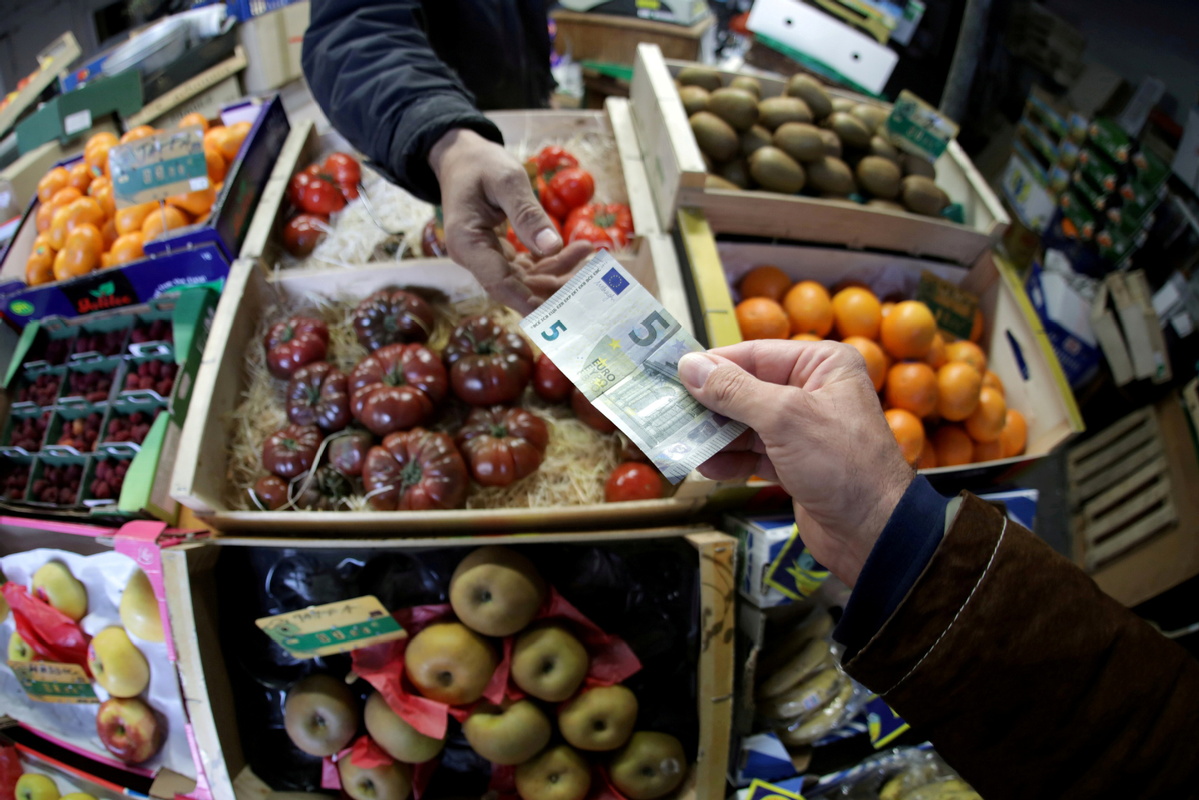Eurozone inflation may be temporary, say experts
By JONATHAN POWELL in London | China Daily Global | Updated: 2021-09-02 09:08

Economists say they expect inflation in the eurozone to fall again next year after latest data for the region showed consumer prices had accelerated to their highest level in almost a decade and Germany's inflation rate reached a 13-year high.
The eurozone's harmonized index of consumer prices, released on Tuesday, jumped to 3 percent from a year earlier, up from 2.2 percent in July, while Germany's Federal Statistical Office had previously announced that prices in Europe's largest economy rose 3.4 percent compared with 3.1 percent in July, which is the highest since July 2008.
Germany's Bild newspaper reported a "new inflation shock" in a frontpage headline on Tuesday.
Inflation rates are rising across the eurozone driven up by the rebound from the impact of the pandemic, disruption to global supply chains, higher energy costs, and the reversal of last year's German cut in value added tax, reported the Financial Times.
The consensus among economists is that consumer prices will continue to rise in the coming months, but that it is a temporary phenomenon, reported the Agence France-Presse news agency.
"The current increase is likely to remain temporary," Christine Volk, chief economist at public lender KfW, told AFP.
The shortages of key components, such as computer chips, could have an impact on consumers' wallets, as companies are likely to pass on the higher costs, at least partially, she said.
Jack Allen-Reynolds, an economist at Capital Economics, told the Financial Times that the effects of reopening and supply problems could intensify in the next few months.
"But we suspect that they will begin to fade next year as global consumption and trade patterns return to something like their pre-pandemic norms, and producers - especially of semiconductors - are able to increase their output," he said.
The finance paper said the governing council of the European Central Bank, or ECB, will meet next week to discuss a slowdown in the pace of its bond-buying.
Another economist told the paper he expects the ECB will raise its inflation and growth forecasts.
"This could be the basis to reduce the pace of bond purchases under the pandemic emergency purchase program in the fourth quarter, possibly to a rate between that of the first quarter and the faster rate which the ECB had adopted thereafter," said Salomon Fiedler, an economist at Berenberg.
Meanwhile, surging inflation is set to cost Britain's Treasury an extra 12 billion pounds ($16.5 billion) this year, the Daily Telegraph reported.
It said a quarter of the national debt is tied to the retail price index (RPI), so the unexpected jump in inflation forces the Treasury to pay more to investors. Britain's RPI inflation hit 3.9 percent in June.
The paper quoted Samuel Tombs at Pantheon Macroeconomics as saying he expects RPI to rise to 4.9 percent toward the end of the year.
"Our forecast for further above-trend month-to-month increases in the RPI over the next nine months implies that debt interest payments will overshoot the OBR's March Budget full-year forecast by about £12bn," he said.
























